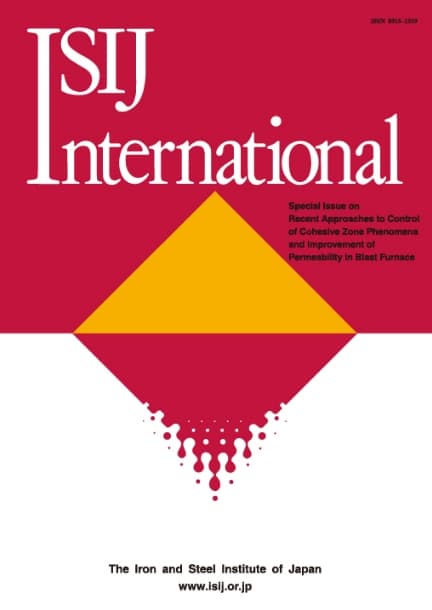Mean Velocity and Turbulence of Water Flow in a Cylindrical Vessel Agitated by Bottom Air Injection
Manabu Iguchi, Masaki Shinkawa, Hideyo Nakamura, Zen-ichiro Morita
pp. 1431-1437
Abstract
Cold model experiments based upon aqueous systems were carried out to study the mean velocity and turbulence intensity in a metallurgical reactor agitated by gas injection. The axial and radial velocity components in a cylindrical bath stirred by bottom air injection through a centered single-hole bottom nozzle were measured using a two-channel laser Doppler velocimeter. The spatial mean kinetic energy for mean flow, i.e., circulating flow, km, v, and that for turbulence fluctuations, kt, v, were determined. It was found that km, v and kt, v depended on 0.60 and 0.72 power of the injected gas flow rate, respectively. The energy supplied by the injected gas into the bath therefore was more consumed to maintain turbulence motions than to do mean flow as the gas flow rate increased. A spatial mean velocity Vm, v=(2km, v)1/2 and a spatial mean turbulence intensity Tuv=(kt, v/km, v)1/2 were newly introduced. The spatial mean turbulence intensity was above unity under the present experimental conditions. These quantities eere correlated as functions of the gas flow rate, bath depth and bath diameter.










